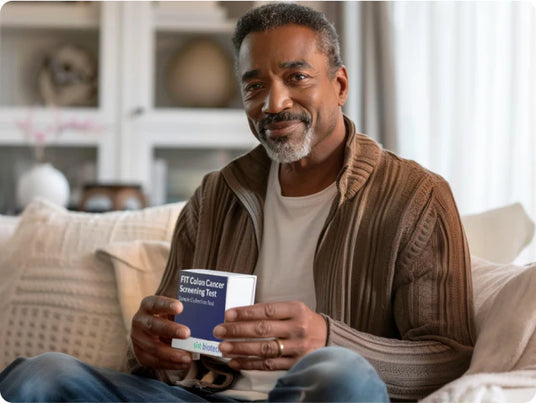Understanding Colon Cancer
Colon cancer is the third leading cause of cancer deaths in the US. By getting screened, you have the power to significantly reduce the odds of colon cancer impacting you and your family.
You Have the Power to Prevent Colon Cancer
When colon cancer is found and removed before spreading, the chance of long-term remission is fantastic—around 90% of patients survive beyond 5 years! If the cancer has spread outside the colon, the chance of living beyond 5 years drops to only about 15%.
What Can You Do to Prevent Colon Cancer?
Colon cancer can take as long as 10 to 15 years to develop, giving you plenty of time to act. Discussing a screening plan with your doctor that's tailored to your needs is vital. It could save your life.

Did You Know
Routine screening is key to preventing colon cancer deaths
- An estimated 60% of colon cancer deaths are preventable if everyone follows screening guidelines.
- Colon cancer screening is recommended for everyone between the ages of 45 and 75—even if you don’t have symptoms.
- People with early colon cancer may not have any symptoms. This is why routine screening is so important.
- Screening tests can detect early cancer or precancerous changes long before these cause symptoms and while they are still easy to treat. Increased screening resulted in a 53% drop in colon cancer deaths from 1980 to 2017.

Returning the Sample
- Confirm your details are correctly written on the ID sticker.
- Wrap the absorbent pad around the closed collection tube, place both in the biohazard bag, and seal it securely.
- Place the sealed biohazard bag in the return mailer, seal the mailer, and drop it into any U.S. Post Office mailbox.
Frequently Asked Questions
What is the Fecal Immunochemical Test (FIT)?
What is the Fecal Immunochemical Test (FIT)?
FIT is a non-invasive, easy-to-use test that checks for hidden blood in your stool, which can be an early sign of colorectal cancer or precancerous polyps.
Why should I use an at-home FIT test for colon cancer screening?
Why should I use an at-home FIT test for colon cancer screening?
An at-home FIT test provides a convenient way to screen for colorectal cancer without needing a hospital or clinic visit. It’s an effective early detection tool for people at average risk.
How often should I take the FIT test?
How often should I take the FIT test?
It’s generally recommended to take the test annually. However, consult your healthcare provider for guidance based on your individual risk factors.
How do I collect my sample with the FIT test?
How do I collect my sample with the FIT test?
The collection kit includes detailed instructions. Usually, you will use a brush or stick to collect a small stool sample, place it in the provided container or card, and seal it.
How do I return the sample?
How do I return the sample?
Follow the instructions provided in the kit. Some kits include prepaid envelopes to mail the sample to a laboratory, while others require drop-off at your healthcare provider.
How long does it take to receive results?
How long does it take to receive results?
You can typically expect to receive your results within one to two weeks after mailing your sample.
What should I do if my FIT test results are positive?
What should I do if my FIT test results are positive?
A positive result means blood was detected in your stool. It's crucial to consult your healthcare provider for further evaluation and potential follow-up tests, such as a colonoscopy.
Can dietary or medication changes affect the results?
Can dietary or medication changes affect the results?
Unlike other tests, FIT is not affected by your diet or medications. However, follow the kit instructions carefully for the most accurate results.
Does insurance cover at-home FIT tests?
Does insurance cover at-home FIT tests?
Many insurance plans cover colorectal cancer screening tests, including FIT. Check with your insurance provider or healthcare professional to confirm your coverage.
Who should consider an at-home FIT test?
Who should consider an at-home FIT test?
This test is recommended for adults aged 45 and older who are at average risk for colorectal cancer. Those with higher risk should consult their healthcare provider for tailored screening recommendations.





